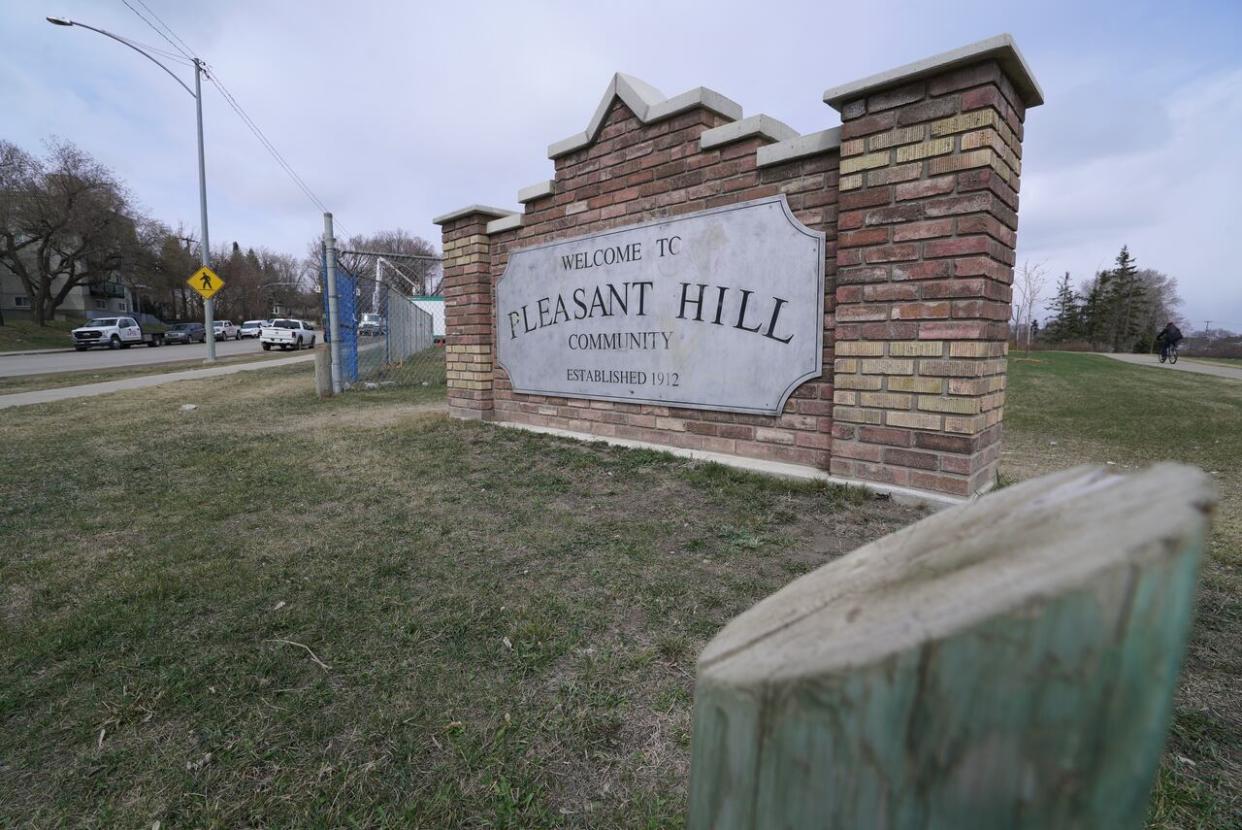Community association urges province to address escalating crises in Saskatoon's Pleasant Hill

Pleasant Hill, a neighborhood in west-central Saskatoon, is experiencing an escalating crisis of homelessness, violence and addiction, according to Adam Pollock.
"We want the provincial government to make the necessary changes to the programs that are broken to make sure that this doesn't get worse," said Pollock, who is president of the Pleasant Hill Community Association and has lived in the neighborhood for 12 years.
He said there's been a dramatic influx of "vulnerable people across the city who are finding their way to Pleasant Hill for services that aren't being properly funded."
This means people are struggling and front-line workers can't keep up. Meanwhile, businesses and longtime community members are leaving.
Earlier this month, Affinity Credit Union announced it will close down its Saint Mary's Advice Centre come springtime after nearly 75 years in Pleasant Hill.
Mark Lane, Affinity Credit Union's CEO, told CBC the decision was due to a significant spike in safety concerns for staff and clients, as the "physical health needs and the mental health needs of the community have grown to a point where they exceed the financial wellness needs of the community."
Pollock fears this departure is indicative of what's to come.
"Businesses like that are pulling out, doctors are pulling out," he said. "I've been in conversations with a number of other businesses in the community who are saying that their clients are scared to come to get their services."
Pollock said the association is not suggesting vulnerable people leave the neighborhood, nor is it pointing fingers at the organizations trying to help, rather it believes the people and programs should be properly supported by government.
Calls to action
The association penned an urgent letter to political leaders, calling for change.
Pollock said front-line workers in Pleasant Hill are being bogged down by paperwork. He said the province should station income support workers in the neighborhood's community agencies, five days a week, beginning no later than Dec. 18, 2023.
"The people who are providing services in our community shouldn't be expected to be on the phone all day long trying to get people their identification back."
Pollock said the province must move faster to open up the city's new shelter spaces, noting it has promised to create 15 new complex needs shelter spaces and 60 new emergency shelter spaces (split across two sites) in Saskatoon over the next two years.
The community association said the province should establish "and open 30 new shelter beds by Jan. 1, 2024, and another 30 new beds by March 31, 2024." It also wants the province to establish a minimum of 80 new permanent supportive housing units for people with complex needs, with 40 units open by March 31, 2024.
Finally, the community association wants the province to fix "the well-documented and anticipated issues with the Saskatchewan Income Support (SIS) program which continues to manufacture and sustain homelessness."
SIS was first announced by the Saskatchewan province in 2019, with the promise that it would be a way for people on assistance to become more self-sufficient. Tenants now receive a monthly cheque from the province to pay for their utilities, food and rent bills.
Pollock said the old model of providing rent money directly to landlords was better for community members.
"That just made sure that people who were vulnerable weren't falling through the cracks," Pollock said.
"The government says there are mechanisms in place to protect the vulnerable, but the problem is there's a great amount of people in our community who haven't necessarily been identified in a checkbox as vulnerable."
Government statement cites existing commitments
The provincial province did not grant CBC's request for interviews with its ministers of Social Services and Mental Health and Addictions about the association's calls to action.
Instead, Ashley Soeder, a communications consultant for the Ministry of Social Services, sent a written statement that said the province is "working with the City of Saskatoon and community-based organizations and Indigenous partners to establish additional services in Saskatoon."
"Homelessness is a complex issue with root causes that include addictions and mental health issues that can't be solved by income assistance alone," the statement said.
Soeder noted existing commitments from the province, such as the $40.2 million in new funding over the next two years to create new supportive housing, permanent emergency shelter spaces and complex needs emergency shelter spaces. She said that as of October, a new partnership with Saskatoon Tribal Council is providing 55 supportive housing units in Pleasant Hill.
Pollock said the province's efforts need to match the urgency of the situation.
"If the government doesn't respond to these calls to action, then homelessness is only going to grow worse and worse in our community. Homelessness results in desperation. Desperation results in crime and addictions," Pollock said.
"There are people who have never done a drug in their life who are now on the streets surrounded by drugs, so if [the province] doesn't realize the snowball effect that this is having, then we need to call for better leadership."


